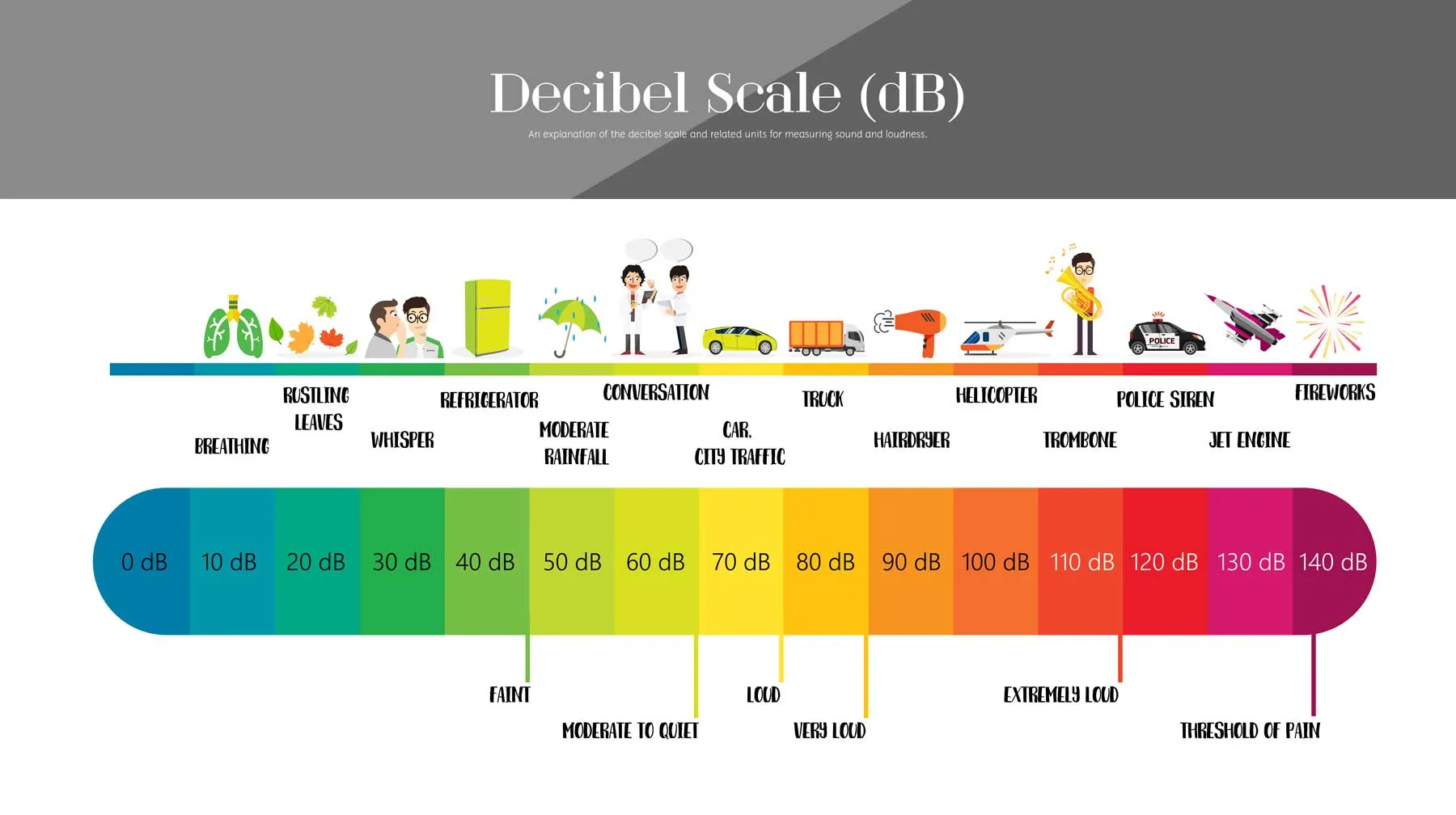Noise pollution and regular exposure to loud noise can cause long-term hearing damage, but how loud is too loud?
The loudness of sound is measured in decibels (dB), and the noise scale is given a weighting of dB(A) after correction for the perception of the human ear.
This scale ranges between 0 dB(A) and 180 dB(A), representing the softest sound the human ear can detect to the blasting noise from a rocket launch at the two extremes respectively. It’s also important to note that decibels are logarithmic, which means that if the dB level rises by 10, the loudness of sound rises tenfold, making hearing damage more likely.
Everyone’s sensitivity to sound is different. Generally, sound intensities higher than 80 dB(A) can lead to hearing damage. As a rule of thumb, when you have to raise your voice in order to be heard in a noisy environment, the background noise level is 80 dB(A) or higher.

How Loud Noise Can Damage The Ear
There are three key factors that affect the likelihood of a sound leading to hearing damage:
1. Decibel level: how loud the sound is
2. Distance: how close you are to the source of the sound
3. Time: the length of time you are exposed to the sound
Exposure to noise pollution or excessively loud noises for even a short time, such as from an explosion or gunfire, can lead to instant and even permanent hearing damage. However, hearing loss is usually more likely to result from sounds that aren’t as loud but you are exposed to repeatedly for long periods.
Some examples of how loud noise can damage the ear include:
- Listening to loud music through headphones, at a concert, or while you’re playing an instrument
- Going to the movies or cranking up the volume on the TV at home
- Cranking up the volume on the stereo in the car
- Going to sporting events attended by large, noisy crowds
- Going to fireworks shows
- Working with loud power tools
Can Hearing Damage Be Repaired?
In some cases, any hearing damage you’ve experienced may return to normal a day or two after you’ve been exposed to loud noises. However, recent research suggests that your hearing can be permanently damaged even if you don’t have noticeable hearing loss right away.
What Are The Symptoms Of Ear Damage From Loud Noise?
As noise-induced hearing loss from noise pollution or exposure to loud noises can build slowly over time, you might not notice the early signs of hearing damage. As your hearing gets worse, certain sounds, particularly speech, may begin to sound muffled. You may also notice the following symptoms of ear damage from loud noise:
- Noise feeling painful in the ear
- Tinnitus: ringing/ buzzing/ other sounds in the ears
- Sounds generally heard being more quietly than usual
- Asking others to repeat themselves more often
- Difficulties hearing conversation in noisy environments
- Problems hearing over the telephone
- Turning your TV volume up
How To Prevent Hearing Damage
There are some tactics to that you can try to help prevent hearing damage to protect your hearing for longer, such as:
- Keeping the volume down when listening to music or watching TV
- Limiting time spent on noisy activities
- Investing in ear protection products to use when in loud noisy environments
- Heed the warning signs of hearing loss
- Monitor safe listening levels through smartphone apps
- Get regular hearing check-ups
We have a wide array of custom protective earware available to choose from depending on your needs. So, whether you need protection from harmful loud noises, noise pollution, have trouble with water getting in your ears, or would simply like stylish personalised earphones, we’ll be able to provide the ideal bespoke solution for you.
We offer the following custom-made ear protection for loud noises and other purposes. Our range of earware includes:
Due to the bespoke nature of our ear and noise protection products, we will need to take impressions (model imprints) of your ears. We also offer ear impressions as a separate service for those that have already purchased their own custom earware products elsewhere and require these to complete their order.
